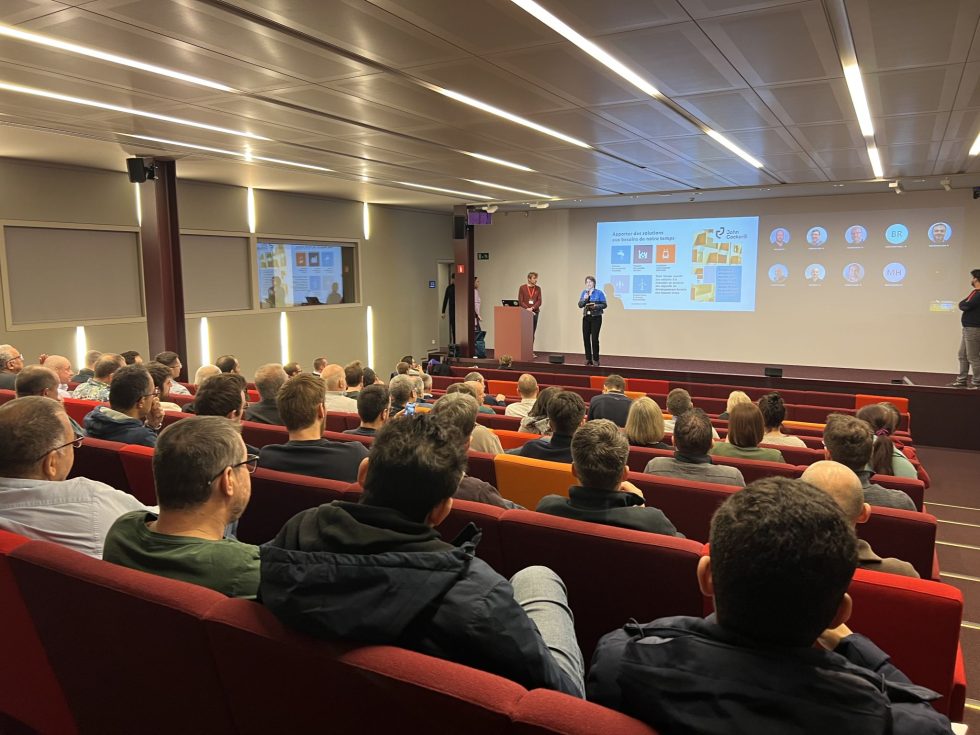Understanding the impact of the steel industry on climate change

December 07th 2023
With the COP 28 currently debating about climate change and the future of our planet, the environmental impact of metals processing is an important topic that has been addressed in an internal conference at our HQ in Seraing (Belgium) some days ago. The start-up Polygones, whose mission is to support businesses in their sustainable transition, helped us to raise awareness and understand the causes and effects of climate change, but also the impact of non-renewable resources, or why it is so important to integrate life cycle analysis and circular economy considerations into our product design.
There’s no getting away from it, we need to act fast: from global warming to biodiversity loss and deforestation, from pollutants and plastic to nitrogen cycles and freshwater… six of the nine planetary boundries within which humanity can continue to develop and thrive for generations to come, are being irreversibly crossed, while simultaneously pressure in all boundary processes is increasing.
While steel has two major eco-friendly advantages – it is recyclable and lasts for decades – its production is highly energy consuming and produces huge amounts of CO2. Today the production of metals stands for 40% of all industrial greenhouse gas emissions, 10% of the global energy consumption, 3.2 billion tons of minerals mined, and several billion tons of by-products every year. Facts that underline that this industry must become more sustainable – the quicker the better.
Sustainable- and Eco-Design incorporate environmental impact into product design and development at a product’s conception. Today, our teams already integrate general considerations like helping our clients to save energy, making punctual life-cycle analysis, rendering repairs easier and conceiving a more sustainable sourcing strategy, into our daily project work. At John Cockerill we are very much conscious that ESG (Environment, Social, Governance) considerations are to integrate all levels of our organization. With awareness raising presentations like the one prepared by Polygones, the Metals Management wants to make sure that our colleagues are well armed to help our Group with this goal, and that tomorrow all of our employees are consciously helping us in our quest to develop and design solutions in a way that benefits all, respects our planet and protects the environment.
During the conference our colleague Bertrand Meunier, Mechanical Project Engineer with our entity in Seraing, made the connection between the challenges and what John Cockerill’s Metals Business Line has already done to encounter those. As such, Bertrand shared information about several Metals’ projects supporting a more sustainable steelmaking. The electrification of our line furnaces, the highly efficient JVD (Jet Vapor Deposition) replacing more pollutant classical steel galvanizing, or Volteron allowing the net zero production of steel, are some of the examples of how John Cockerill Industry is addressing this topic vital to slow down climate change.
Thanks to Metals Liège’s Company Manager Isabelle Wimer for having made this conference possible. Thanks also to Polygones for the preparation and the animation, as well as to our colleagues Bertrand Meunier, Julie Lemarchand and Eve Gridelet for the organization of the conference. Finally: a big thank you also to all our teams for their vivid interest and participation.

